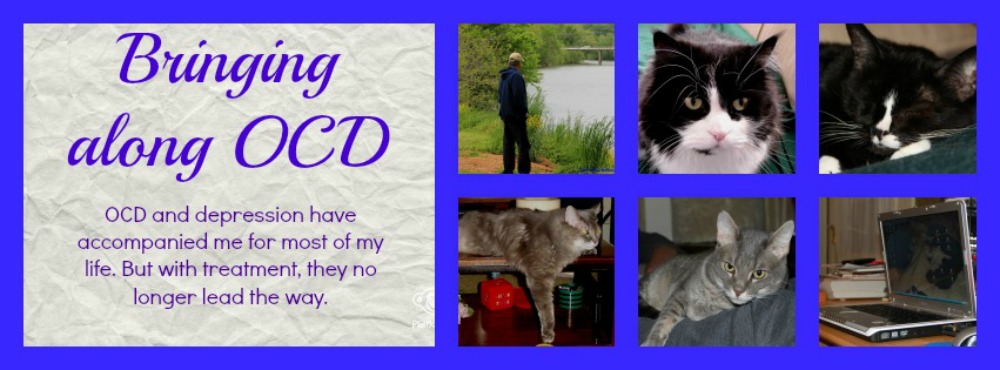If you have obsessive-compulsive disorder or think that you do, there’s something that I want you to know: you can get better. There are treatments available. You can get relief.
I’ve said that before. I hope it’s a belief that permeates my blog.
But it’s worth saying again. And again. As many times as it takes to make sure you know, deep down: you can get better.
Earlier this week, I wrote a post describing a day with OCD and other anxiety. The day I wrote about was stressful and full of anxiety, but it wasn’t the worst day I’ve ever had.
I started to think about those of you who have worse days than that quite often. And I felt compelled to write this post.
Before I got any treatment, before I even told anyone about my symptoms, OCD had come to rule my life.
I was in my 20s when I first got treatment for OCD.
Before then, I spent hours at a time scrubbing my bathroom over and over.
I checked my stove until the early morning hours to make sure it was turned off.
I couldn’t read a book because of reading OCD, which made life as a student very difficult.
Every time I walked anywhere outside, I slowed myself down by checking every stick and stone that looked like it might harm someone else.
I prayed compulsively for God’s forgiveness and worried about my eternal salvation.
My hands were dark red and incredibly dry from excessive hand washing.
My life was hell. I had no hope that I would get better. I didn’t want to live.
But a friend encouraged me to see a therapist by revealing to me that she was in therapy.
I started seeing a therapist who I learned to trust. She referred me to a psychiatrist, who diagnosed me with OCD and depression and started me on medication.
Through the years after that, I also learned new ways of dealing with OCD and my thoughts and actions by reading and researching OCD, from cognitive behavior therapy, from exposure and response prevention, by reaching out to others with OCD, from writing about OCD, from meditation and from learning more about myself.
I am better today, so much better than I was when I was first diagnosed more than 20 years ago. And I have hope that I will continue to get better and learn to live a life at peace with OCD.
Here are some resources to help you learn more about OCD and the treatments available:
Here are two books that especially helped me:
Brain Lock: Free Yourself from Obsessive-Compulsive Behavior. By Jeffrey M. Schwartz, MD, with Beverly Beyette.
Freedom from Obsessive-Compulsive Disorder: A Personalized Recovery Program for Living with Uncertainty. By Jonathan Grayson, Ph.D.
Remember that you are not alone.
I encourage you to reach out and get help if you haven’t. I encourage you to keep on fighting to get better.
I encourage you to get some relief.
What are some things we can all do to encourage others who have mental illnesses?

